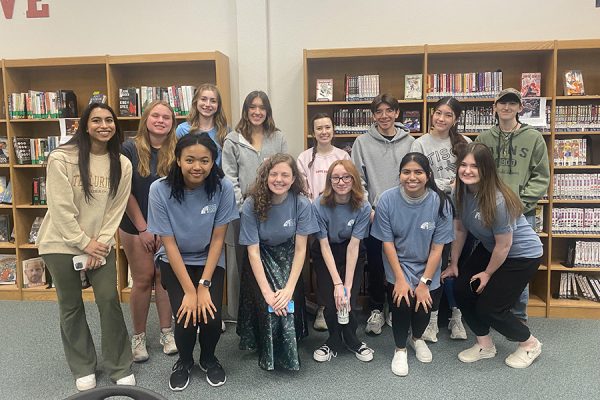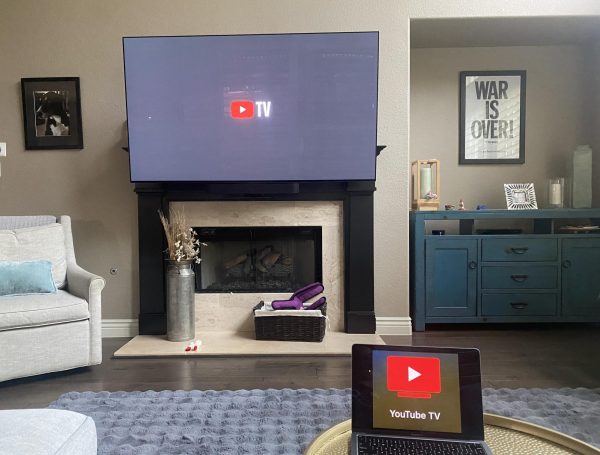Arguably, the Best
Students, Teacher Speak About Debate, Virtual Competitions
photo courtesy of Aiden Seibel
Focusing on his computer, junior Aiden Seibel arranges his notes and prepares his argument for the District Cross Examination competition on Jan. 23. Him and his partner, junior Kellen Cao, placed fifth in the event. Both students are novice debaters, and this is their first year on the varsity team. “Competitions are very hard now because they’re all virtual,” Seibel said. “We don’t go to events, we just go onto our Zoom calls. I remember one experience where I was five minutes before the competition started and I was on a Zoom call with my teacher freaking out about where to go for the Zoom call because I couldn’t find the link to get to the meeting.”
January 26, 2021
The room goes silent. Two students stand at the front of the room, each poised at a podium, opposite one another. A panel of judges sits a distance away. A topic is introduced, and one student begins to speak. Words fly out of his mouth, bouncing off the walls and through his opponent’s ears. The timer buzzes only after a few minutes, and he goes silent. A different, also confident, voice erupts from the other side of the room, this time countering every point brought up by her competition. She speaks with dexterity and complexity, pointing out flaws in her competitor’s argument and highlighting the key focus points of hers. The timer beeps once more, and the room returns to how it was at the start.
Well, not quite.
Contrary to the past, all debate competitions have been held live online this year, and on Jan. 23, the team competed in Cross Examination Districts. Cross Examination (CX), also known as Policy debate, is where two teams of partners either advocate for or reject a policy presented for the federal government of the United States. This year’s topic for CX was criminal justice. The debate team was originally going to present patent trolls, but instead decided to run a case advocating for Native American tribal courts.
“It was an awesome feeling to advance, and I was just excited to end off my last debate competition [in] high school,” senior Claire O’Keefe said. “Riley and I worked very well together and helped each other with how we were organizing our arguments. In CX, having a good teammate is imperative for sure. It was a great competition, especially since we had only gotten our cases a couple weeks in advance.”
The CX partnerships consisted of O’Keefe and junior Riley Pritzlaff as well as juniors Aiden Seibel and Kellen Cao. The latter team placed fifth, and Pritzlaff and O’Keefe advanced to semifinals and then placed fourth.
“The [students] did really well,” debate teacher Dawn Azbill said. “Claire and Riley won two out of three of their prelim rounds and advanced to semis, and my beginning CX debaters, Kellen and Aiden, won one out of three rounds, which is amazing considering it’s their first year doing this. We were also late getting our cases, because it’s better to have them at the beginning of the year, but we only got them a few weeks ahead of time.”
With fully virtual competitions, technology and communication problems have occurred at every corner, according to Azbill. For the most recent competition, the meet actually started 30 minutes later than it should have due to technical difficulties. In addition, although UIL does state the meets are open to the public, the online platforms being used do not allow spectators during the actual competition, meaning that debaters are in a room with only their team members, if any, their opponents and a judge.
“I think the worst part of the day [of competition] was the technology issues that we had at the very beginning,” Azbill said. “It was kind of crazy. One of my debaters, Claire, could not join our squadroom, I couldn’t get into Tabroom, [the platform we use to access information about our meets], and it was insane. Technology issues have been a problem all year. It’s frustrating, and someone always has an issue. I haven’t had a meet yet where we haven’t had some type of technology issue.”
CX has many rules, one of which includes that a student must address every claim made by their opponent. This can lead to speed reading, or rapid-fire, which begs the issue of whether or not a student is truly engaging in their competition, according to Azbill.
“[Students] have what is called disclosure, and at the beginning of a round you can ask for a copy of your opponent’s case, [and] basically you’re reading it instead of your opponent,” Azbill said. “I am totally against rapid fire. I feel very strongly that the purpose of any debate is to learn effective communication and effective argumentation, and if you’re speaking so quickly that someone has to resort to a written copy of your case, you are obviously not communicating effectively.”
Although competitions and debate have changed due to COVID-19 restrictions, students still must spend time preparing in and out of the classroom.
“We practice case writing, we discuss strategies, and something very very important [students] have to keep up with [is] current issues, internationally and domestically,” Azbill said. “We have days where all we do is discuss what’s going on in the world. If we were face-to-face, this is the time where we would start doing the actual debates in class because our cases are pretty much written. [Being online also] means I haven’t had the chance to build a sense of team with the new people; it’s just harder with them being virtual. The camaraderie isn’t as strong as it usually is.”
In order to prepare for a debate, there are a variety of different approaches. For Seibel, listening to podcasts and being able to know statistics off the top of his head, he said, is very helpful, whereas Cao says that planning out the framework and writing down a few words of his argument is key.
“Usually when I prepare for a case, I don’t really think too much mentally,” Cao said. “It’s just memorizing the information and knowing how to spit it back out because there really isn’t too much time to mentally prepare yourself. For me, instead of writing down word for word [what I will say], [I follow] a structure that we know as debaters. It’s a bit like an English essay; you need a hook, you need an opening statement, and body paragraphs. We know the structure, [and] it’s all about putting the information in and getting that perfect product at the end. You just have to make sure you have the sources down.”
This year has been especially different on account of virtual meets, but also in the idea that the team was able to work their schedule around the presidential election last year.
“It’s been very interesting this year because we’ve been able to work our way around the schedule of the election in 2020, and it was a period where people’s political orientations would really come out,” Seibel said. “Sometimes you would see a little bit of clash between some of the students, even the teacher to chime in her thoughts, so there really was a lot more politically charged debate instead of just talking about interesting things.”
In addition to CX, there are other events to participate in as well, such as Congress, Lincoln-Douglass and Extemporaneous Speaking. Events can vary from one-on-one debates about policy to the proposal of bills and partner debates. Junior Bella Fernandez is a part of the Congressional debate team, where participants draft bills and solutions and then later discuss and vote on which policies should pass into legislation.
“I like Congress because of how much more knowledge in current events you get from competing, as it reflects what actual representatives in Congress do,” Fernandez said. “With Congress, you receive a docket with multiple bills and resolutions and you affirm or negate what it is [being proposed]. An example of [a] high school debate mimicking Congress includes “a resolution to join the Paris Climate Agreement. I enjoyed speaking about [this topic] because of how controversial it had become following former President Donald Trump removing the United States from agreement. As I was researching more into it, my knowledge widened by analyzing why Donald Trump chose to leave the PCA as well as statistics of what changes had come with the agreement.”
On Oct. 24, junior Slava Andrianov advanced to semifinals in Lincoln-Douglas debate. These debates are a bit more traditional, as two students with opposing values compete against one another for winning the better case to fit the situation. According to Cao, Lincoln-Douglas is more focused on one’s morals and ideals versus a substantial policy.
“My favorite event is Lincoln-Douglas debate, because it tests your on-the-spot argumentation and analysis skills against your opponents directly in round,” Andrianov said. “The research and case preparation element done before the competition is also very important, but I really enjoy the one-on-one test of skills when you are actually debating your opponent in round.”
Extemporaneous Speaking, which is divided into foreign and domestic affairs, is where students are asked a question about a randomly selected topic and then given 30 minutes to prepare their seven minute response with reason and evidence. Pritzlaff competed in Foreign Extemp on Oct. 14 and Sept. 25 and advanced to semifinals in both, but didn’t place.
“When I first sit down, I always go through a series of rapid searches about the topic to get some background [to] start building my argument, then start searching for things to put into a basic framework to build my speech,” Pritzlaff said. “Once I have my main points drawn out, I start practicing, especially focusing on the sources since those are the hardest to remember. After pacing around [and] going over my speech a few times with my notes, I head over to the competition. You can’t use notes [during] the official [competition], so I always do one last run through on my way to the room (or just before logging onto the Zoom). My biggest struggle is giving a polished speech, without so many “ums” and “uhs.” But, despite how difficult Extemp is, I do enjoy making arguments and researching things I might not have otherwise known about.”
The team will continue to practice their speeches and work on their cases throughout the rest of the year in order to succeed at future competitions in the spring.
“My first year has been a completely different experience than I thought it was going to be, [but] in a good way,” Seibel said. “[Debate has] really been a buffet where I’ve been able to sample everything. We still have half a year left, and I can’t imagine what else debate has in store for the spring, but at least I know it’ll be fun. I’m going to continue to try everything this class has to offer me. Most likely, next year, I’ll start specializing in the events that are most fun to me. I’ll definitely be doing more Congress. [Debate] has just encouraged me to go out and actually do my research on a lot of things. The talk within the actual class itself has really improved how much I can just talk and debate people in general and in life, I think it’s just a really important life skill, to go through and actually be able to debate people on something that you actually have information on. The class itself is a lot of fun in that respect.”
For many students, debate is an opportunity to express themselves, learn more about today’s world or to just passionately argue about a topic. Any student is welcome to join debate class as well as the club Youth and Government.
“[Debate] is an indicator of future success, in all academics and in the workplace,” Azbill said. “It teaches research skills for one, if you are debating you are writing research papers all year, that’s basically what a case is. It teaches speaking skills, it teaches logic [and] argumentation. I know that it is one of the number one courses that college admissions officers look for. You go into college having the skills that you need to be successful, and they’re looking for that. I find that even if you have trouble in other classes, the skill set that you’re using is so wide that almost everyone has a niche for themselves.”

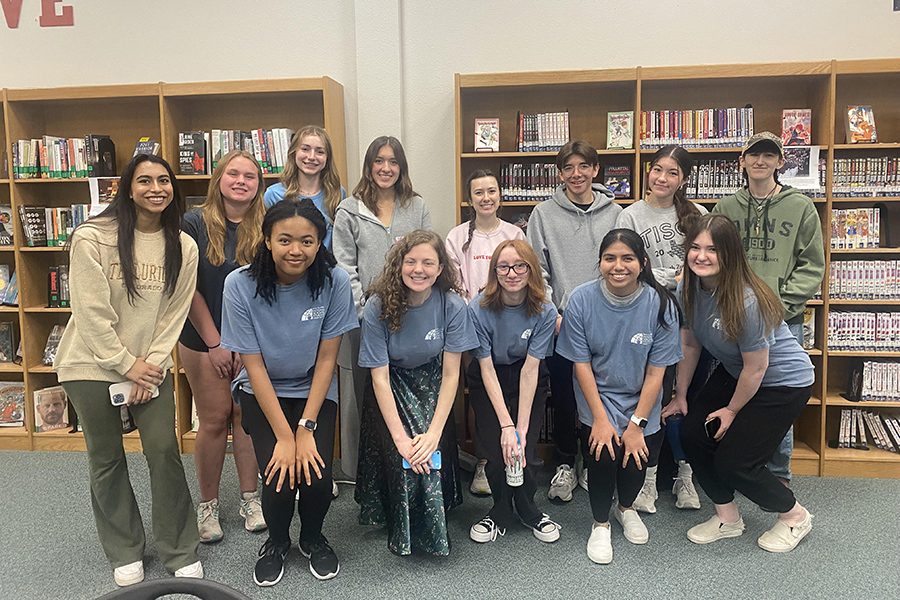
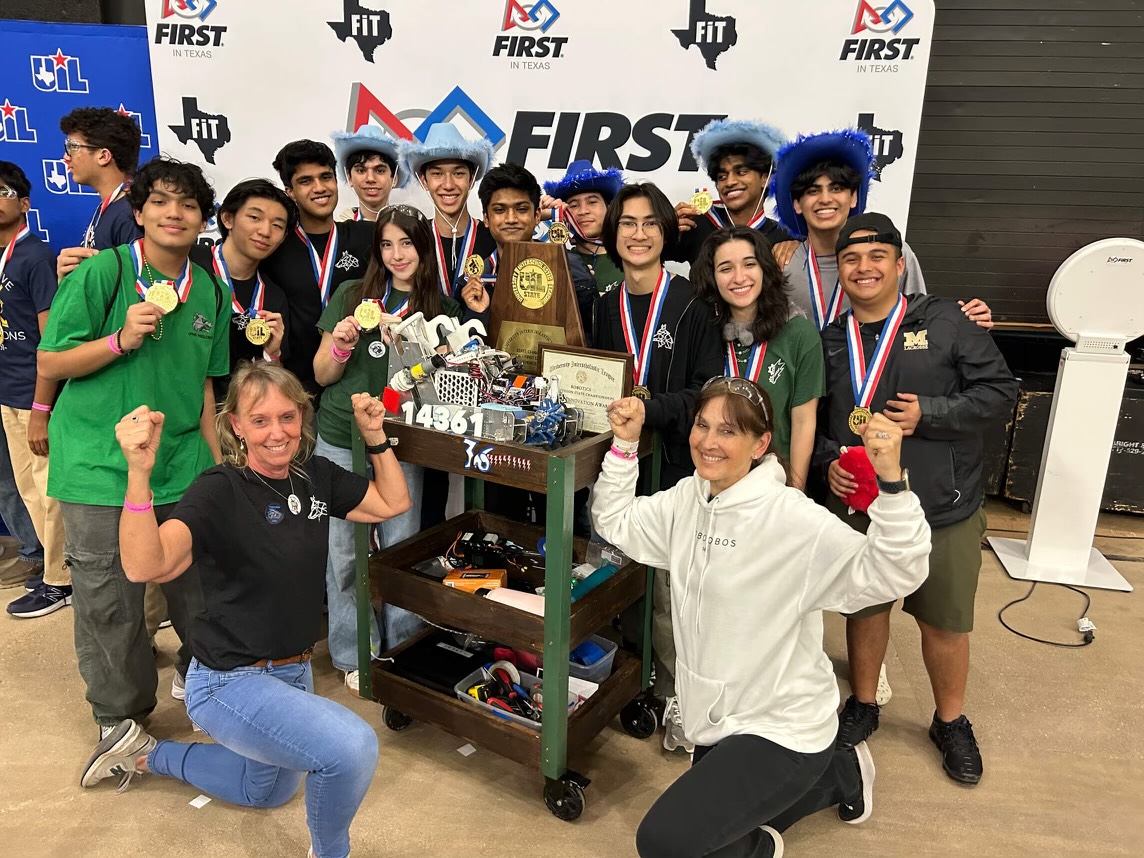
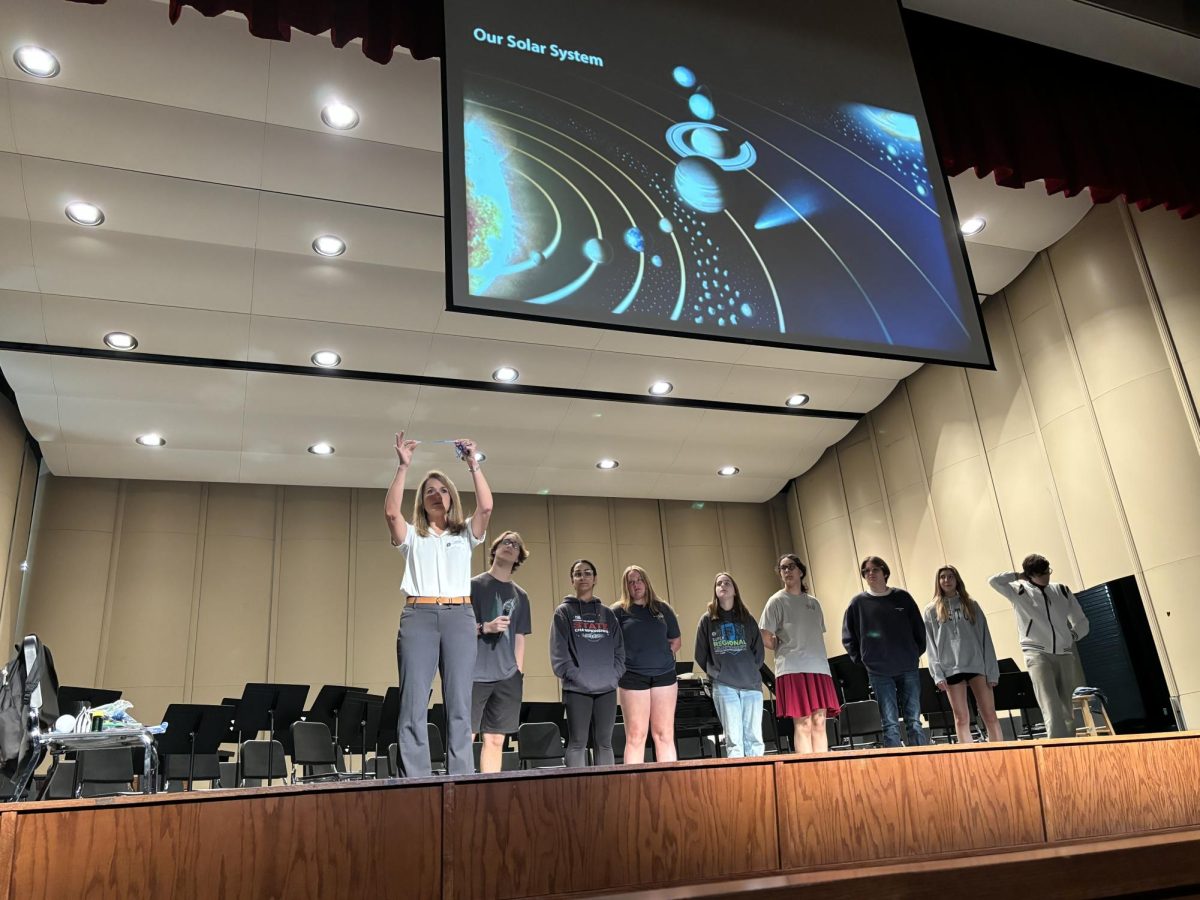
![Walking through the tunnel created by the cheerleaders and Celebrities, senior Frances Tran smiles as the soccer team is sent off during DEN for their playoff game against Rouse tonight. Tran said the wins against Smithson Valley and Alamo Heights gave the team a morale boost to take on the Raiders tonight. “I know we were not 100% confident in those games,” Tran said. “But, Rouse is a big opponent for sure. We’re definitely going into tonight with a lot of morale [because of the previous wins].”](https://cphswolfpack.com/wp-content/uploads/2024/04/frances-tran.jpg)
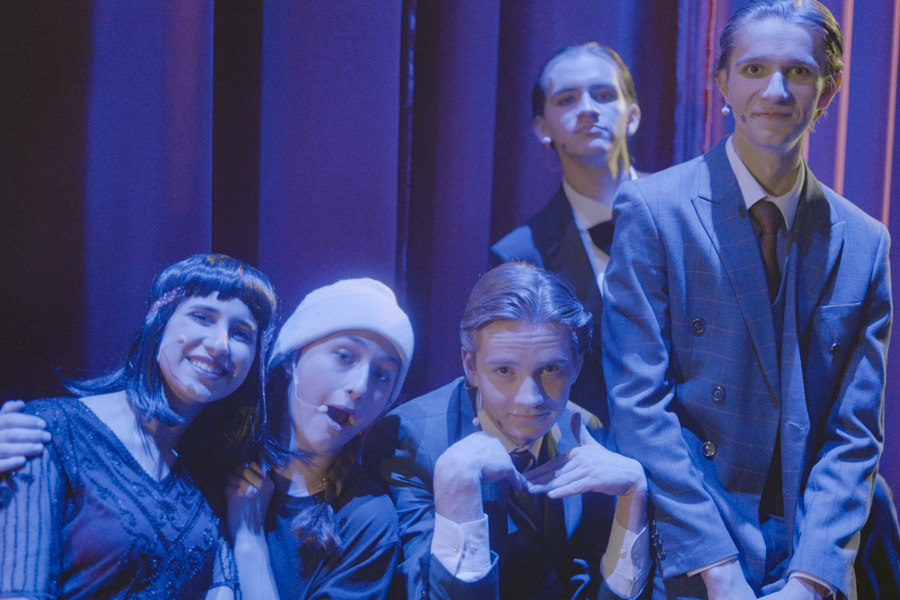
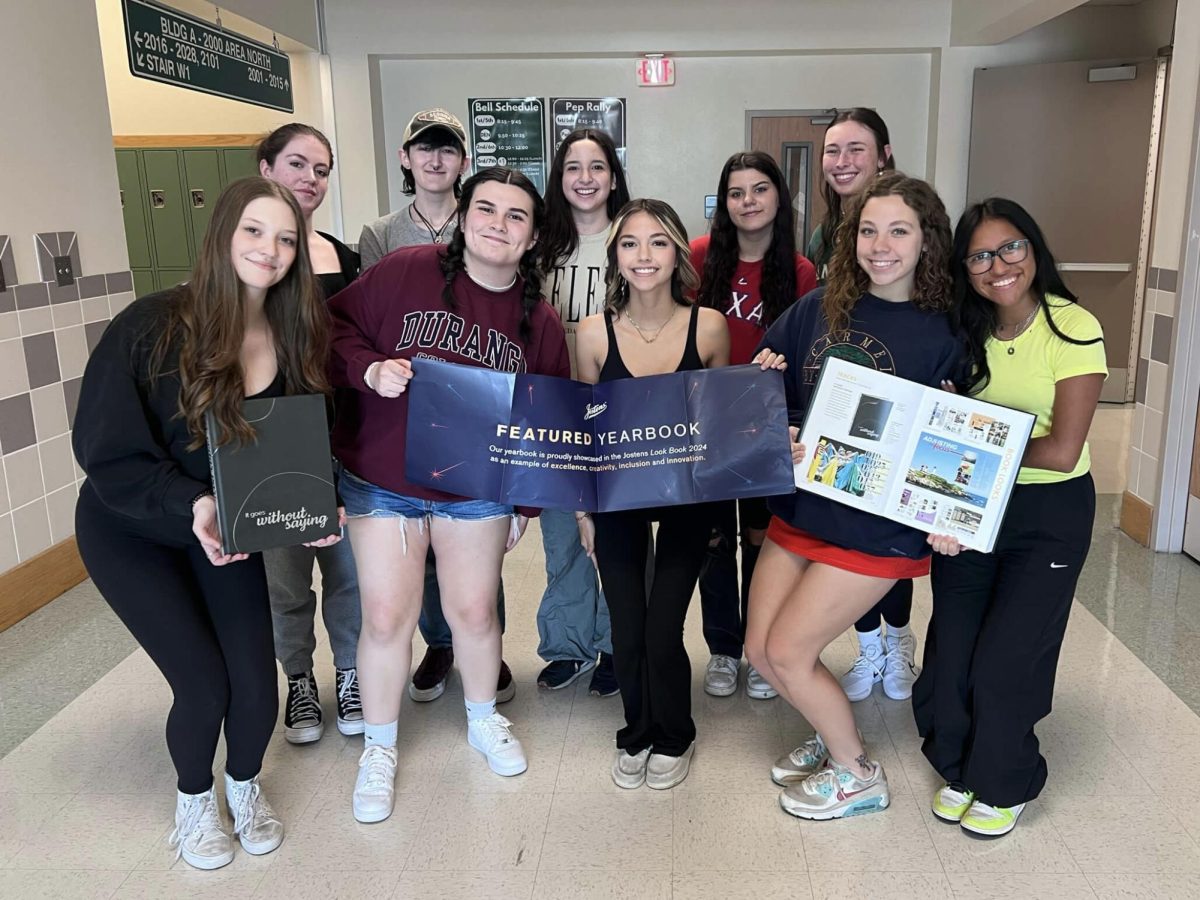

![Holding a bucket of materials in one hand and a roll of tape in another, anatomy and biology teacher Tyler Terry prepares for a lab. Terry said his proudest moments are when his students are happy to see him. “When I take my wife to a football game or something and a bunch of students want to say hi to me or they like to smile and wave and it just makes me feel good that the students are really kind and supportive of me,” Terry said. “[I’m also] proud when I see students perform really well in their extracurriculars because I can see how hard they’re working in my classes, [so] when I see that they’re also working so hard in other things. Like they’re winning band competitions or they’re getting awards for their theater productions, or I see them put on their choir shows, that’s like, wow, you guys are incredible.”](https://cphswolfpack.com/wp-content/uploads/2024/04/Rags-6.png)


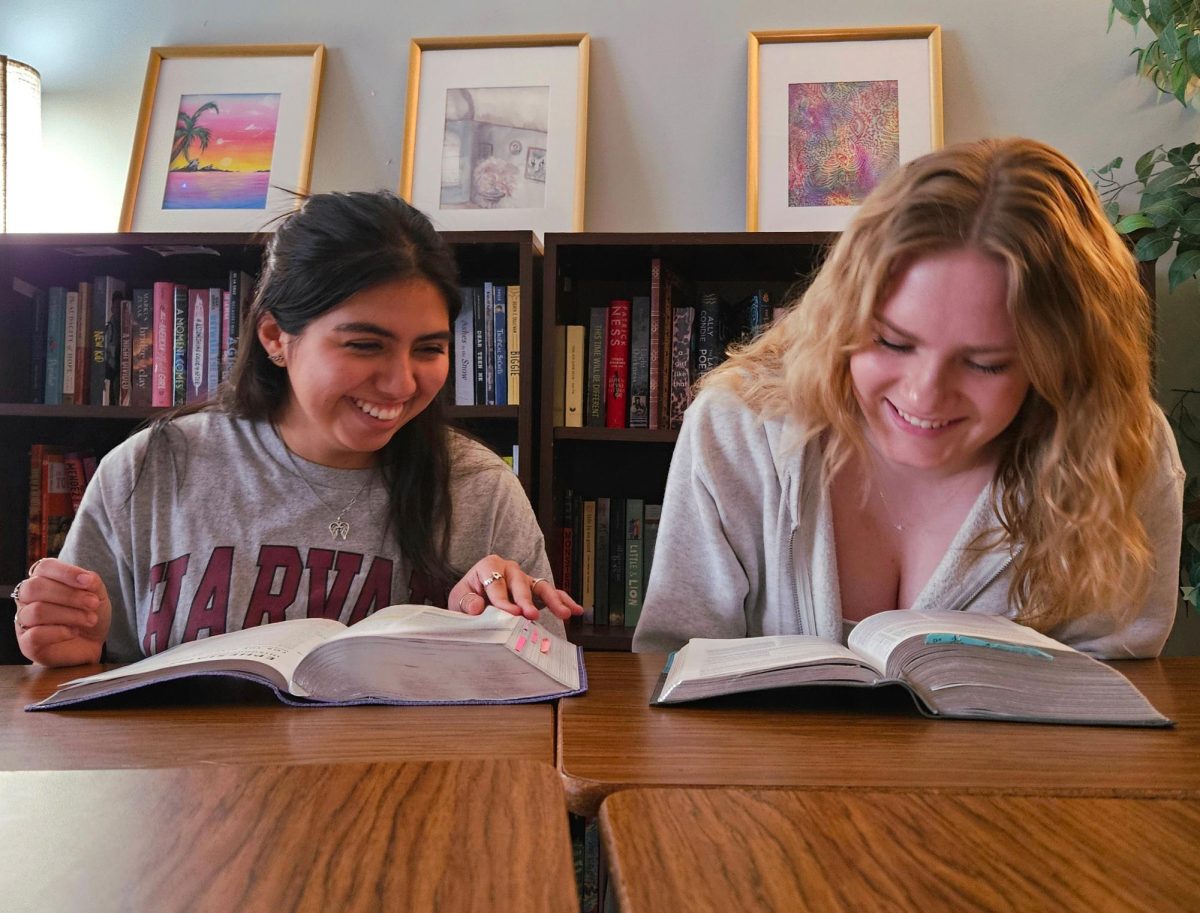
![Catching a ball, junior Alivia Robinson plays at the Cedar Park vs Glenn game. Having played since she was 5 years old, she is dedicated to softball and has committed to UTPB for softball. “When I got my offer it took me a very long time to decide where,” Robinson said. “Softball has always been my dream for college, and UTPB is my fit. When [I committed] I knew I was going to be loved and supported.”](https://cphswolfpack.com/wp-content/uploads/2024/04/Lilly-Adams-3.13aliviaedit-901.jpg)

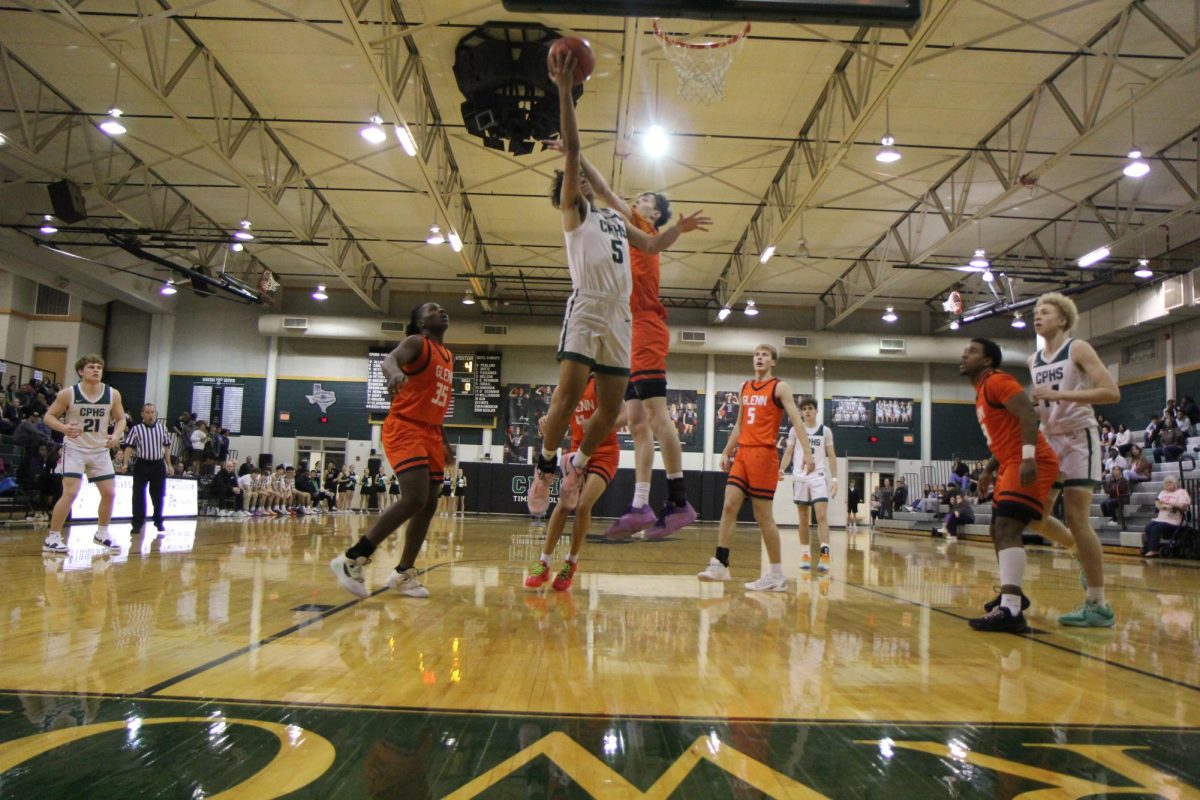

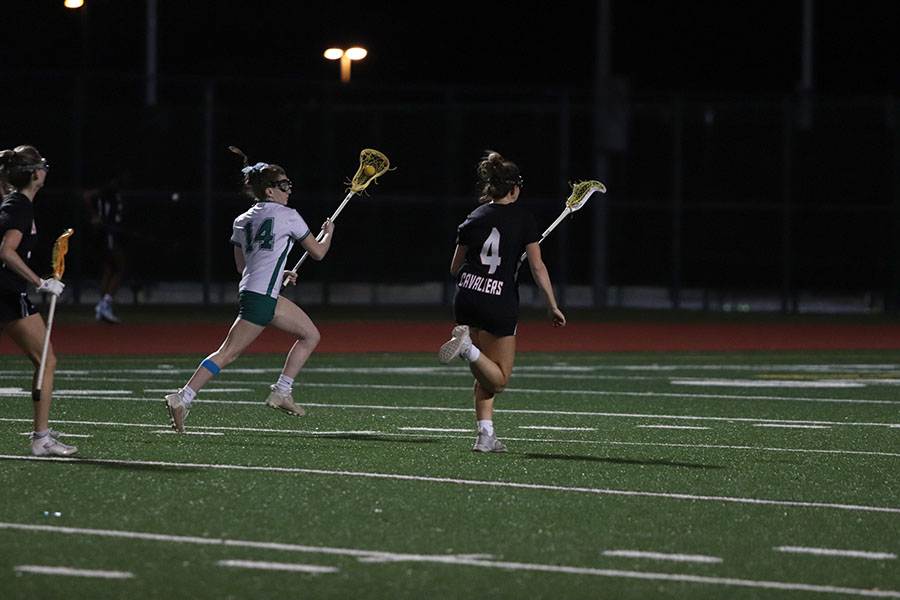
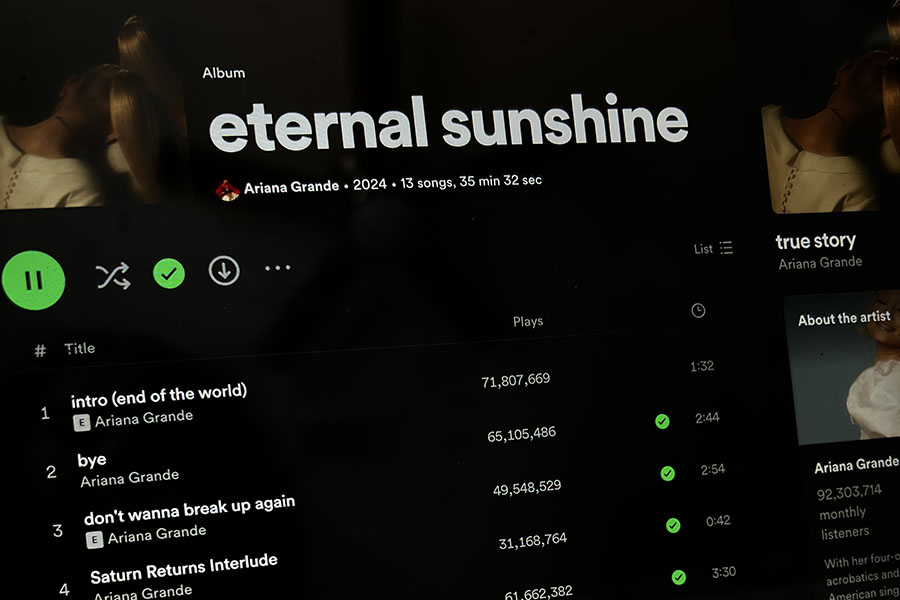

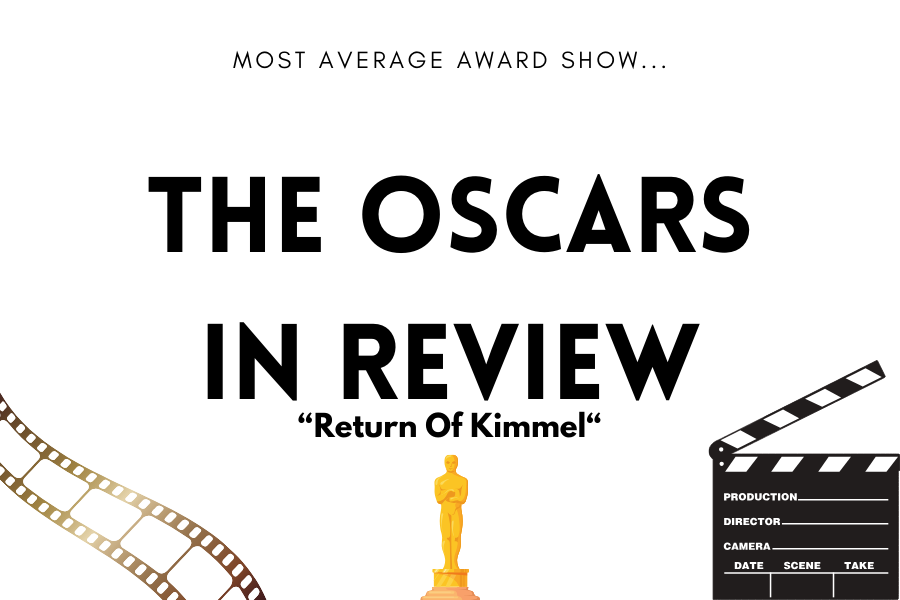


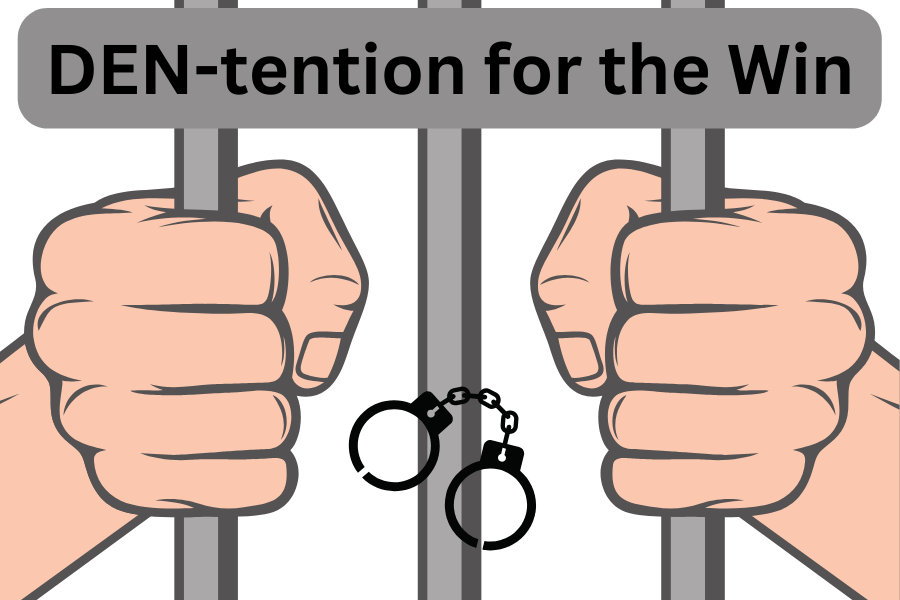
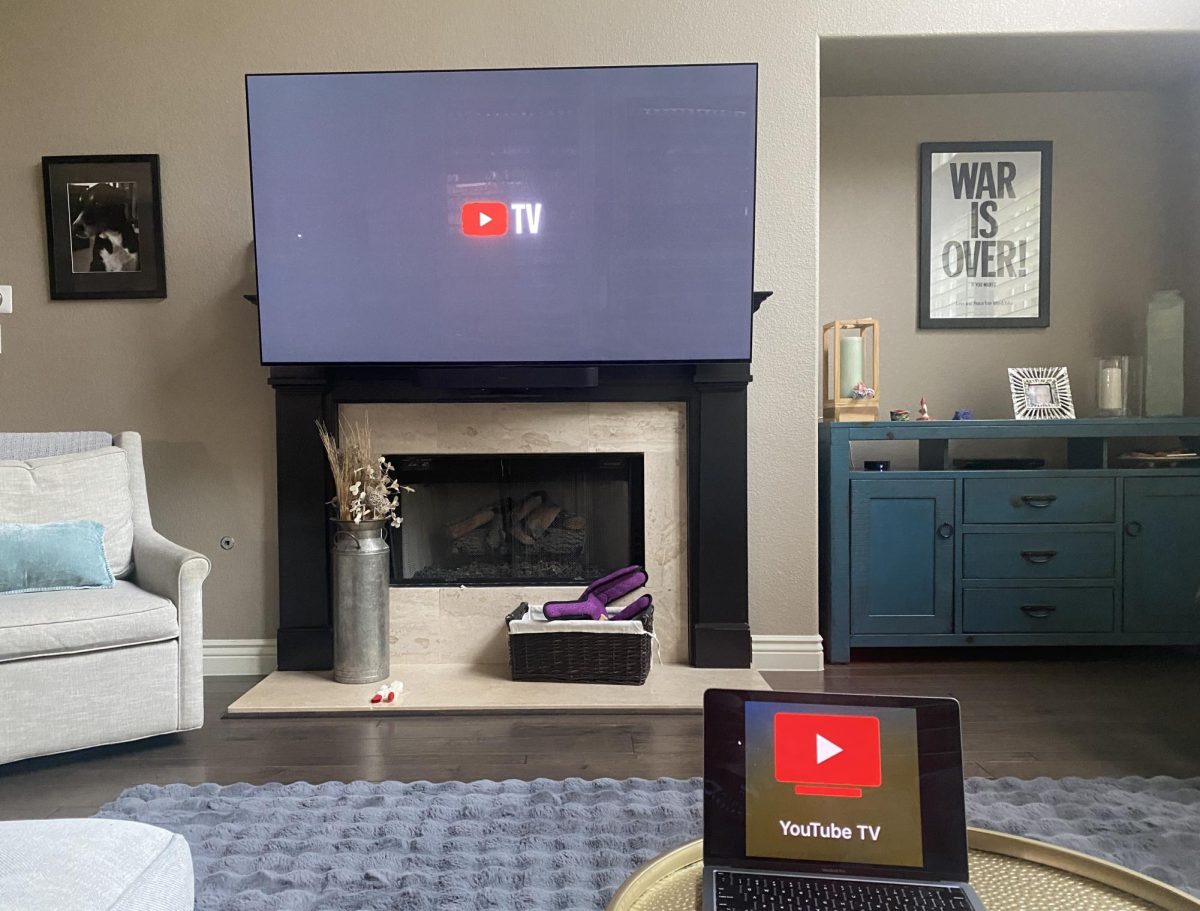



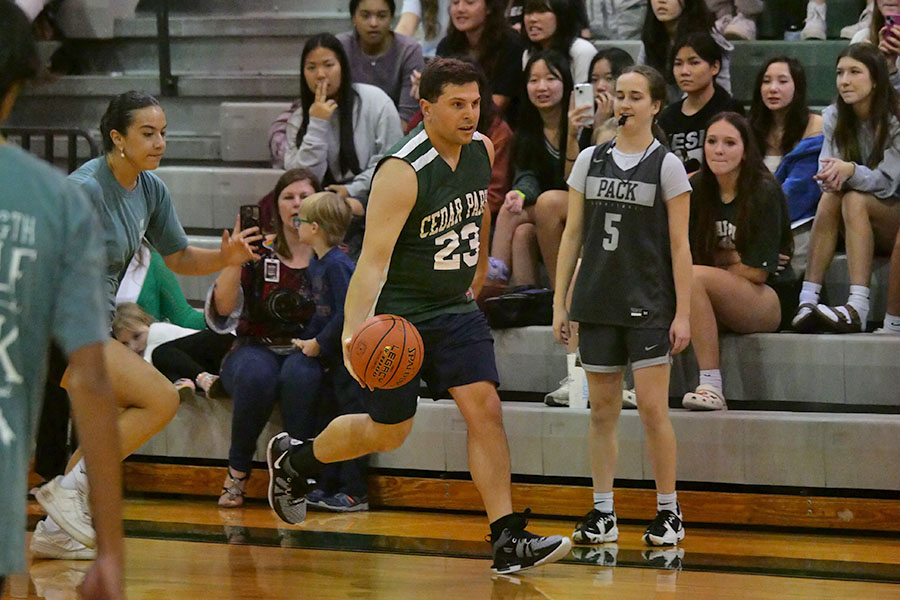


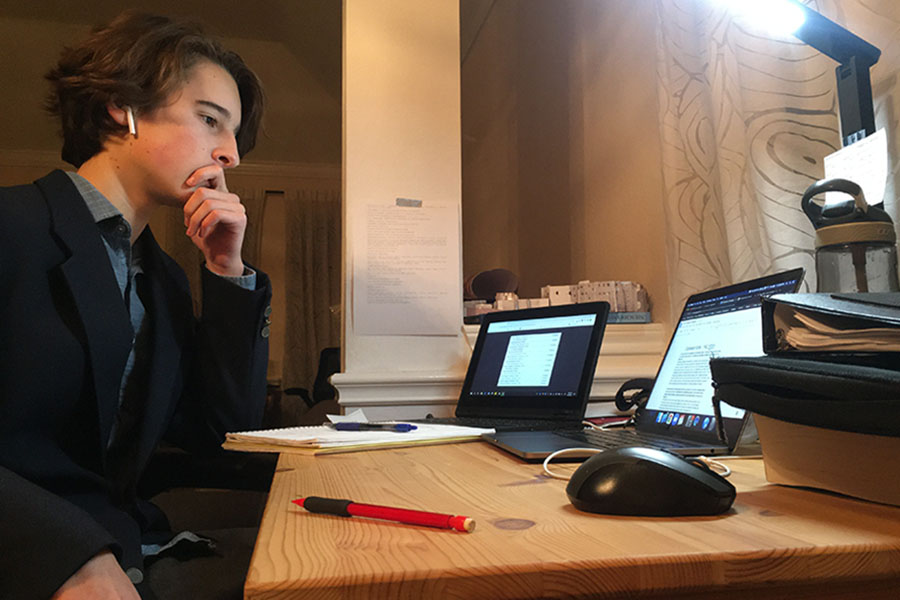


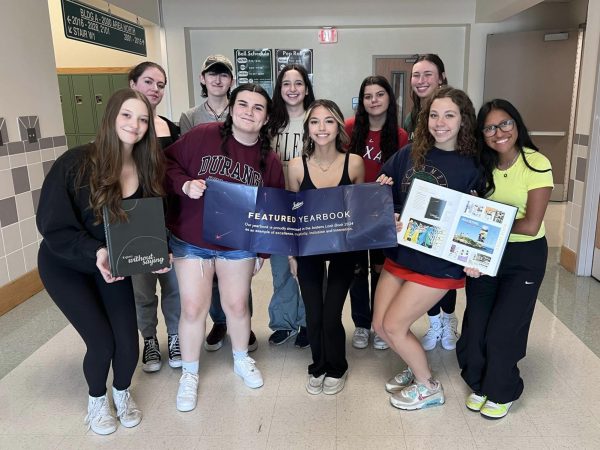
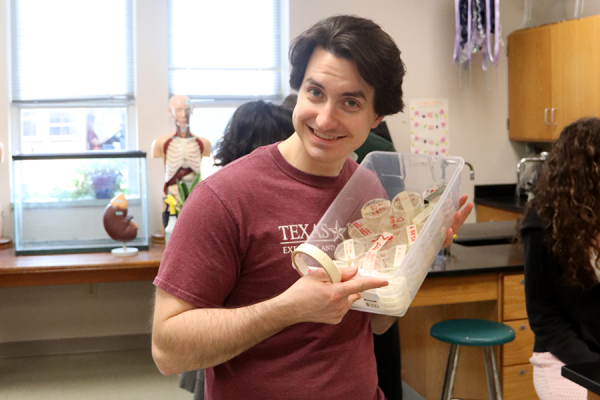
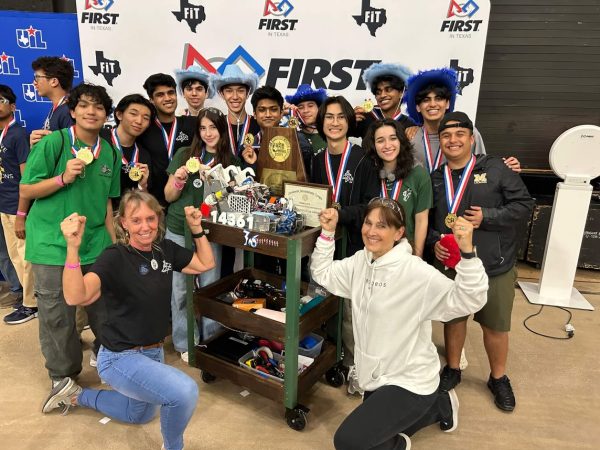
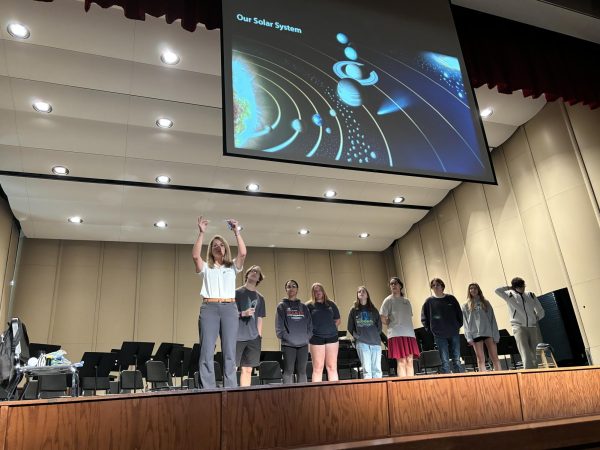
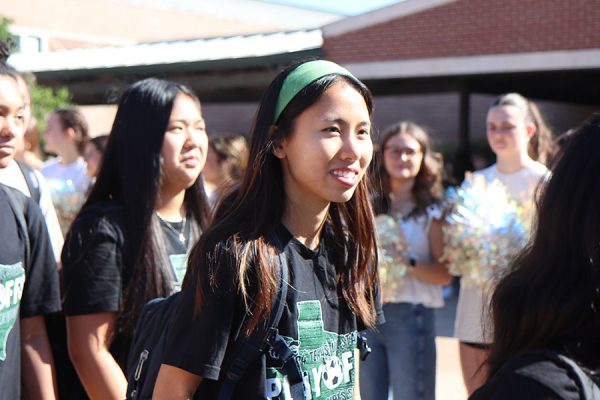
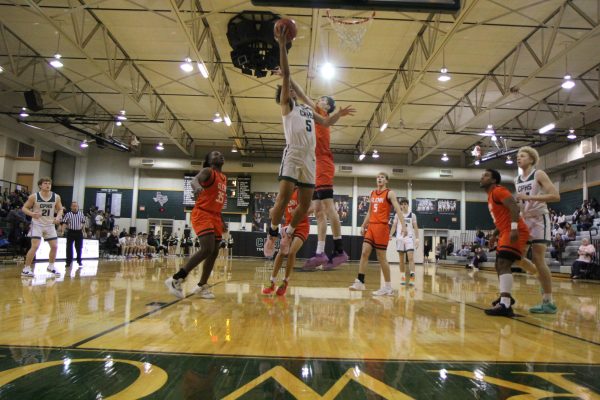





![Holding her dog, Nova, senior Ariana Balakrishnan poses for her senior pictures while Nova wears a bandana with her college decision. Balakrishnan applied to 18 colleges in total, but she decided on Columbia in the end. “Right before I clicked the button to open Columbia’s letter, I literally looked at the camera and go ‘This is just gonna really suck because I wanted it so bad,’ and I clicked it and all of a sudden you hear trumpets,” Balakrishnan said. “There’s a video that plays when you open it and I actually didn’t watch the video, I just watched the screen go black, because every day of December before ED [Early Decision] I would go on YouTube and watch the acceptance video to manifest it, so immediately when the screen went black, I started screaming and jumping up and down. And my parents in the video are like ‘What are you doing, where’s the letter,’ and I was just screaming ‘I got in, I got in.” I just started crying, and it just felt like everything in the world came together.”](https://cphswolfpack.com/wp-content/uploads/2023/04/ariana-2-300x217.jpg)

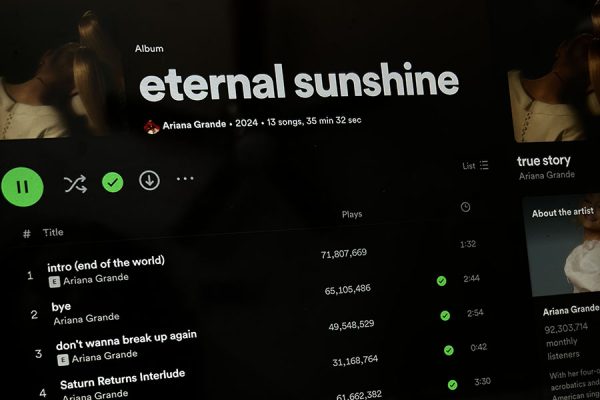
![Catching a ball, junior Alivia Robinson plays at the Cedar Park vs Glenn game. Having played since she was 5 years old, she is dedicated to softball and has committed to UTPB for softball. “When I got my offer it took me a very long time to decide where,” Robinson said. “Softball has always been my dream for college, and UTPB is my fit. When [I committed] I knew I was going to be loved and supported.”](https://cphswolfpack.com/wp-content/uploads/2024/04/Lilly-Adams-3.13aliviaedit-901-600x400.jpg)
